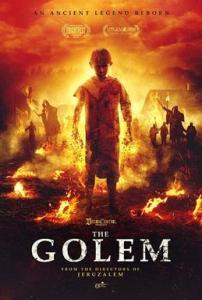My latest piece on The Golem has just appeared on Horror Homeroom.It’s free—check it out.In it I briefly discuss Jewish horror.I mainly write about Christian horror because that’s my immediate context.That’s not to say other religions don’t participate in the genre too.While I worked for Routledge I acquired the book Buddhism Goes to the Movies, by Ronald Green.Like the title suggests, it’s about movies focused on, or made by, Buddhists.What sold me on the project was the chapter on horror films.Much of what’s being called “J-Horror,” or Japanese Horror these days, occurs in a Buddhist or Shinto contexts.I’m not expert enough in these traditions, however, to spot them with the detail that I do in my own native religion.
All religious traditions have certain commonalities.As I’ve frequently discussed on this blog, sex and death are two of them.Given the powerful ideas that religion trades in, it seems natural that it would appear frequently in the horror genre.It’s just that modern viewers tend to be somewhat divorced from religion and can’t see it.Religion is that way—it fills the cracks.How often do we pay attention to the caulking or grout?We tend to focus on the tile or woodwork instead.Religion holds thought systems together, including those of the horror genre.I just discussed no-go subjects yesterday, but even science shows religion in some of the cracks.Learning to see it involves learning to shift your focus.

I blogged about The Golem just after I watched it, back in December.The golem is an original Jewish monster, and Judaism is both a culture and a religion.It’s difficult to tease them apart sometimes.The same can be said of many traditions outside Christianity.In fact, many cultures had no word for religion—the idea of a separate realm of life where you try to please the gods because what you do otherwise is inherently sinful.(There’s probably a reason that capitalism grew in a Christian context.)That means that horror particularly welcomes Christianity.Many of the bases of fear are premised on a religion that, as culturally bound as it is, has always claimed that joining it is a choice.If you can choose you can choose wrongly.This is fertile ground for horror, especially when the consequences are eternal. My Horror Homeroom piece takes a different approach than this, but religion and horror nevertheless find themselves together, often in the same room.
